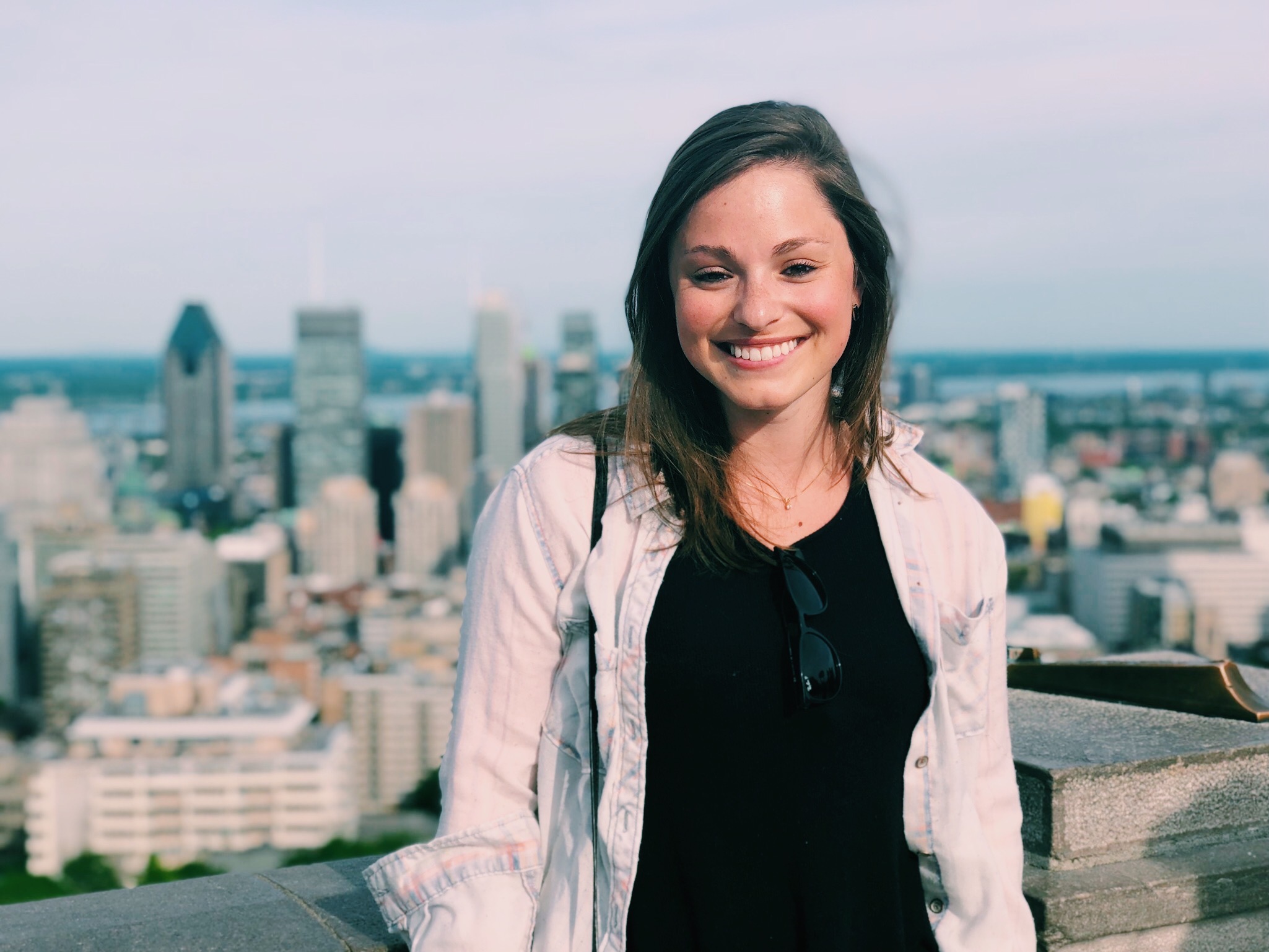Danielle 'Dani' Cooke, a dual-degree engineering alumna, trains neurosurgeons to use technology to cure tremors from conditions like Parkinson's Disease.

Danielle “Dani” Cooke ’16 sees miracles every day. Even better, she helps make them happen.
As a clinical applications specialist in neurosurgery for Insightec, she trains neurosurgeons on how to use technology to perform noninvasive brain surgery using the company’s Exablate Neuro system to treat patients suffering from tremors due to conditions like Parkinson’s disease.
“Some patients have suffered from tremors their whole lives, and then — within a matter of hours — their hands are still. It’s one of the most rewarding things in the world to witness,” Cooke said. “It amazes me every day. I have truly found my dream job.”
Exablate Neuro uses focused ultrasound waves to target a small area in the thalamus, heating it and causing a small lesion which interrupts tremor pathways. The procedure is FDA-approved to treat essential tremors and Parkinson’s-induced tremors.
Cooke graduated from Elon’s dual-degree engineering program, earning a Bachelor of Science in bio-physics/biomedical engineering from Elon and continuing at Columbia University where she earned a Bachelor of Science in Biomedical Engineering.
“For my career, Elon in particular offered me two of the most essential and foundational tools,” Cooke said. “First, Elon professors instilled in me the fundamental concepts of engineering in creative ways. I am constantly reminded of certain classes and projects I completed in those three years.
“The second is the ability to communicate, which I believe is crucial to being a successful engineer, and I think often can be overlooked in engineering curricula. At Elon, there’s not only a natural exposure to building communication skills through the Core Curriculum, but also within the engineering program: through poster presentations, working on team projects and even visiting an elementary school to teach engineering basics. All of these experiences and more taught me how to effectively communicate my ideas and thoughts.”
Those skills are vital to communicating with people at the many different knowledge levels — surgeons, physicians, patients and fellow engineers — she encounters in her role at Insightec.
Cooke wasn’t planning to be an engineer when she enrolled at Elon. Though plotting a course toward medical school, during orientation she attended an interest-session about engineering led by Associate Professor Emeritus Rich D’Amato.
“He started talking about biomedical engineering, and it was like the doors opened up and sunlight came in,” Cooke said. “After that, I knew it was exactly what I wanted to pursue. I took that feeling and changed my course-load a few days before classes started. It was one of the best things that’s ever happened to me.”
She discovered her interest in the brain — “the biggest puzzle left to solve” — during a summer internship at Burke Rehabilitation Hospital in White Plains, New York, as an assistant researcher in a project examining transcranial magnetic stimulation’s positive effects on spinal cord injury patients. In her last year at Elon, she completed a capstone project with Associate Professor Scott Wolter researching carbon nanotube coatings for deep brain stimulation in Parkinson’s patients.
She advises Elon students to take advantage of opportunities to study abroad and immerse themselves in the range of subjects available to them.
“It changed my life going to that one seminar,” Cooke said. “Go outside of your comfort zone to learn as much about as many fields as possible, even if you’re sure you have a path already. This is a unique experience and time in your life, you may find something new that’s exactly what you’ve been looking for.”


